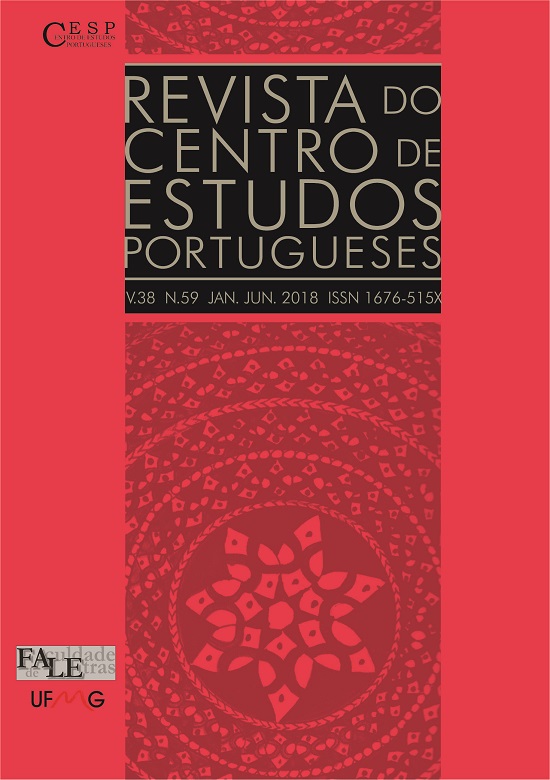Câmara escura ou a captação simbólica do interdito na obra O fotógrafo e a rapariga de Mário Cláudio / Dark chamber or the symbolic capture of the interdict in the work The photographer and the girl of Mário Cláudio
DOI:
https://doi.org/10.17851/2359-0076.38.59.121-129Parole chiave:
Mário Cláudio, The photographer and the girl, poetic symbols, the interdict, O Fotógrafo e a Rapariga, símbolos poéticos, o interdito.Abstract
Resumo: Neste texto faz-se uma análise interpretativa da novela de Mário Cláudio O fotógrafo e a rapariga, partindo dos vários símbolos poéticos usados pelo escritor para exprimir o interdito. Demonstramos como a natureza dúplice e dissimuladora do símbolo poético atenua o choque e mitiga a obscenidade, ao mesmo tempo que obriga o leitor a uma desautomatização do juízo ético, forçando-o a alargar o seu campo de análise e de interpretação, abrindo o seu olhar a novas perspetivas. Salientamos também o modo como Mário Cláudio consegue questionar e transtornar os sagrados e estandardizados padrões éticos e culturais da sociedade em que se insere.
Palavras-chave: Mário Cláudio; O Fotógrafo e a Rapariga; símbolos poéticos; o interdito.
Abstract: In this text an interpretative analysis is made of the novel of Mário Cláudio The photographer and the girl, starting from the several poetic symbols used by the writer to express the interdict. We demonstrate how the dualistic and dissimulating nature of the poetic symbol attenuates shock and mitigates obscenity, forcing the reader simultaneously to a de-automation of the ethical judgment, forcing him to widen his field of analysis and interpretation, opening his eyes to new perspectives. We also emphasize how Mario Cláudio manages to question and upset the sacred and standardized ethical and cultural standards of the society in which he is inserted.
Keywords: Mário Cláudio; The photographer and the girl; poetic symbols; the interdict.





